Gay men's blood: Jeremy Hunt says donation is 'devolved matter'
- Published
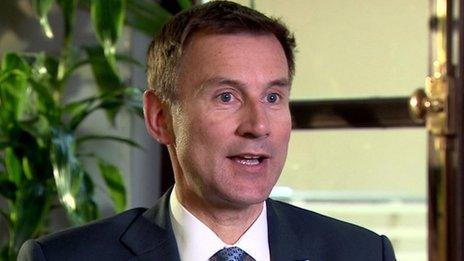
Jeremy Hunt's department said it was appealing against the judgement on the basis of the implications for devolution, not on the issue of men who have sex with men donating blood itself
A decision on whether gay men in NI should be able to donate blood should be a devolved matter, the Department of Health in England has said.
Health Secretary Jeremy Hunt has begun a legal appeal after a judge ruled it was up to him to decide if gay men could donate blood in NI. The ban was lifted in Britain in 2011.
The judge said NI's Health Minister Edwin Poots' ban was "irrational".
Mr Poots has also begun a legal challenge to the ruling.
In a statement, a Department of Health spokesperson said: "Men who have sex with men have been able to donate blood in England since November 2011. We believe that any decision on this issue in Northern Ireland is a matter for its devolved government and ministers.
"We are appealing against the judgement on the basis of the implications for devolution, not on the issue of men who have sex with men donating blood itself."
Earlier, the Shadow Health Secretary Andy Burnham called on Mr Hunt to explain his position on gay men donating blood in Northern Ireland.
'Matter of equality'
A complete ban on gay men donating blood was put in place across the UK during the AIDS crisis of the 1980s, but this was lifted in England, Scotland and Wales in November 2011.
It was replaced by new rules that allow blood donations from men whose last sexual contact with another man was more than a year ago.
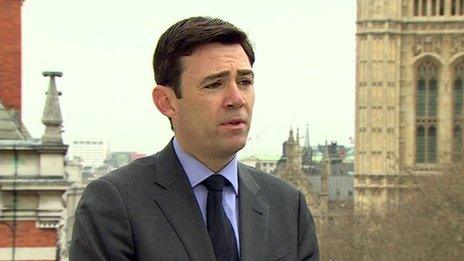
Andy Burnham said Jeremy Hunt's decision to appeal was surprising
However, the lifetime ban is still in place in Northern Ireland, where Mr Poots said it was needed to ensure public safety.
Last October, a judge at the High Court in Belfast said this was "irrational", and Mr Poots did not have the power to retain the ban as it was a matter for the Westminster health secretary.
Mr Burnham told the BBC it was "surprising that Jeremy Hunt had decided to appeal this court ruling and he now needs to provide a full explanation".
"Northern Ireland receives blood from across the rest of the UK where gay men have been donors since 2011," said the Labour MP.
"This is also a matter of equality, and gay men in Northern Ireland should have the same rights to help others by donating their blood as gay men in England, Scotland and Wales."
Sinn Fein's Caitriona Ruane said she felt disappointed by the approach of Mr Poots and Mr Hunt.
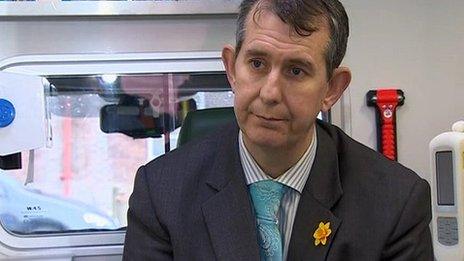
A high court judge ruled Edwin Poots' decision to ban gay men from donating blood was 'irrational'
"I'm appalled that Edwin Poots is squandering public money to defend discrimination. Look at the state of the health service, look at his lack of management, people waiting on trolleys and dying in hospitals and what he is doing is squandering public money, defending the indefensible.
"The DUP needs to look at these court cases and accept court rulings on the basis of equality, rather than their own religious or personal opinions."
The gay rights organisation Stonewall also criticised the appeals.
James Taylor, head of policy at Stonewall, said: "At a time when we need blood donations right across the UK, it's unfair that gay and bisexual men in Northern Ireland are being unfairly discriminated against with a lifetime ban on donations.
"This is a policy not rooted in modern scientific evidence."
Northern Ireland gay rights charity, the Rainbow Project, said it was "disappointed" by the latest developments.
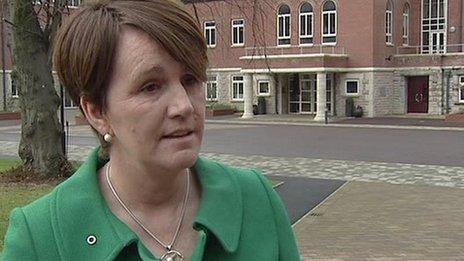
Sinn Féin's Caitriona Ruane said she was disappointed by the approach of Mr Poots and Mr Hunt
In a statement, a spokesperson for Mr Poots' department said the judge's decision "potentially has wide-reaching consequences beyond the immediate subject matter of the case, and the Department of Health and Social Services has strong legal advice recommending an appeal, and accordingly it is appropriate that those arguments should be presented to the Court of Appeal.
"It would not be appropriate for the department to comment further when an appeal to the court is pending."
The Department of Health said it had "considered the potential implications of the judgement, both for blood donation and for devolution".
It said it had submitted an appeal against the ruling following legal advice.
The case is due before the court next month.
- Published15 October 2013
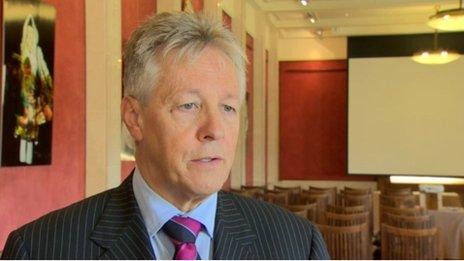
- Published14 October 2013
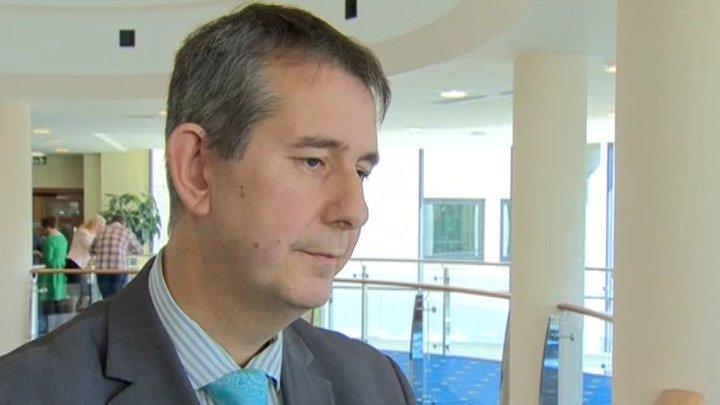
- Published11 October 2013
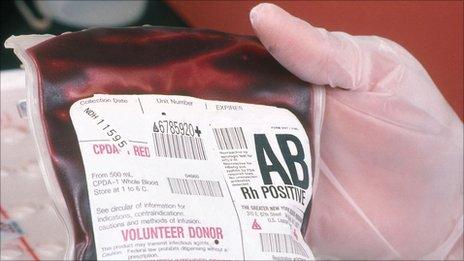
- Published17 June 2012
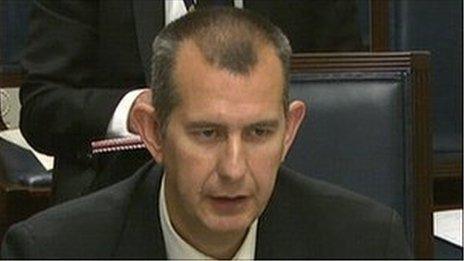
- Published17 June 2012
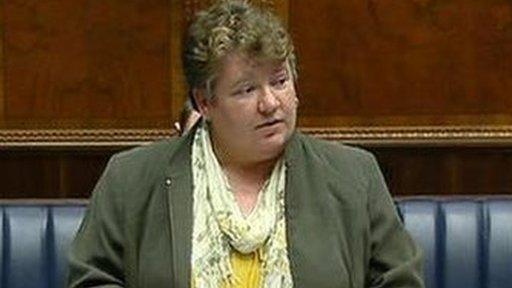
- Published22 September 2011
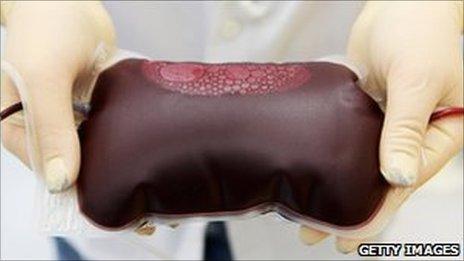
- Published8 September 2011
